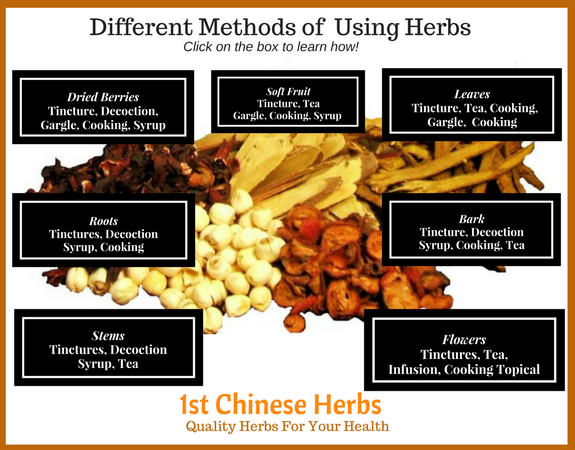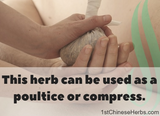Bai Qian (Cynanchum Stauntonii): An Essential Herb in Traditional Chinese Medicine
Bai Qian (白前), derived from the root of Cynanchum stauntonii, is a well-known herb in Traditional Chinese Medicine (TCM). It is primarily used to treat respiratory conditions by resolving phlegm, stopping coughing, and calming wheezing. Known for its ability to direct Qi downward, Bai Qian is an essential remedy for clearing the respiratory passages and ensuring smooth breathing.
A comprehensive resource to understand how Bai Qian works and how to use it effectively
Mechanisms: How Bai Qian Works in TCM
1. Directing Lung Qi Downward
In TCM, when Lung Qi is not descending properly, it leads to symptoms like coughing, wheezing, and chest congestion. Bai Qian has a unique ability to direct Lung Qi downward, ensuring that the respiratory system functions smoothly. This is especially useful for chronic coughs and conditions that cause difficulty in breathing due to excess phlegm.
2. Transforming and Expelling Phlegm
Bai Qian is classified as a phlegm-resolving herb, meaning it works by breaking down and expelling excess phlegm from the lungs. Phlegm stagnation can lead to coughing, wheezing, and chest tightness. Bai Qian's moistening and transforming properties help dissolve phlegm and clear the airways, relieving these symptoms.
3. Calming Wheezing and Coughing
Bai Qian is highly effective in treating wheezing and productive coughs, particularly those caused by cold-phlegm. It works by loosening mucus and calming the respiratory system, allowing for more comfortable breathing. Its soothing action helps reduce bronchial spasms, making it a key herb in the treatment of chronic bronchitis and asthma.
How to Use Bai Qian
1. Decoction
The most traditional method of using Bai Qian is as a decoction. Boiling the herb allows for the active compounds to be extracted, providing relief for respiratory conditions.
- Dosage: Bai Qian dried root is used.
Preparation: Boil the root in water for 20-30 minutes. Drink the strained liquid.
2. Tincture
Bai Qian is also available in tincture form for a more concentrated dose. This can be easily added to water or juice.
FAQs About Bai Qian
1. How does Bai Qian help with respiratory conditions like asthma and bronchitis?
Bai Qian works by directing Lung Qi downward, transforming and expelling excess phlegm, and calming wheezing and coughing. This makes it especially useful for conditions like asthma, bronchitis, and chronic cough, where phlegm and restricted breathing are major symptoms.
2. Can Bai Qian be used for dry cough?
Bai Qian is more suitable for productive coughs with phlegm, especially those caused by cold-phlegm accumulation. For dry coughs without phlegm, other herbs might be more appropriate. It’s always recommended to consult with a TCM practitioner for the best treatment plan.
3. How do I take Bai Qian for lung health?
Bai Qian can be taken as a decoction, in powder form, or as a tincture. For lung health, it is commonly prepared as a decoction and consumed 1-2 times per day. In powder or tincture form, it can be taken daily for longer-term management of respiratory conditions.
Why is Bai Qian Important in TCM?
Bai Qian is a key herb for treating lung-related disorders, particularly those involving excess phlegm and impaired breathing. Its ability to regulate Lung Qi and clear the airways makes it indispensable in treating cold-phlegm conditions. In TCM, the lungs are responsible for dispersing and descending Qi, and when this process is disrupted, it leads to breathing difficulties, coughing, and wheezing. Bai Qian ensures that this vital process remains smooth, restoring balance and health to the respiratory system.
Common Uses in TCM:
- Asthma and Bronchitis: Bai Qian’s ability to transform phlegm and direct Qi downward makes it an excellent choice for managing asthma and bronchitis.
- Chronic Cough: Particularly effective for productive coughs with cold phlegm.
- Wheezing: Helps alleviate bronchial spasms and wheezing caused by excess mucus.
Herbal Information About Cynanchum Stautoni Root in Cut Form
Product Description
Common Name: Cynanchum Stauntoni Root
Pin Yin Name: Bai Qian
Other Ingredients: None, nothing has been added to this product.
Pack Size: 1 pound
Origin: China
Brand: Nuherbs Lab TestedForm: Cut
Caution: Do not use if pregnant or nursing
California Prop 65
Properties
- Sweet
- Acrid
- Lungs
- Slightly Warm
- Dispel phlegm
- Supports Respiratory system
Check out our How to Use Bulk Herbs page to see how to use herbs correctly. Our web page is constantly expanding, as of today we have articles on:
How to make salves, poultice, tinctures, teas, capsules, gargles, and foot bathes.
About Nuherbs Lab Tested Quality.
Each batch of herbs is dual-lab tested by our in-house lab and independent third party lab. Our in-house lab is equipped with instruments such as a high performance liquid chromatography, moisture determination meter, Fourier transform infrared spectrometer, atomic absorption spectrophotometer, gas chromatograph, etc.
In addition, the following additional tests are performed:
- Micro bacteria
- Pesticides - over 200 pesticides tested for (Uab 2000 screen).
- Heavy Metals - Lead, Mercury and Arsenic
Traditional Chinese Herbs encompasses the use of different parts of plants, such as the leaves, roots, stems, flowers, and seeds. These plant parts are often used as a tea, decoctions, extracts, made into capsules or even a footbath. These bulk herbs should be regarded as an added feature to modern western healthcare, and not as a replacement. Chinese traditional herbs ( Teas ) emphasize harmony and balance.
We encourage you to educate yourself on herbs and supplements, by researching reputable sites, and books. Having an open discussion with your physician on what will be most beneficial for your health issues. And lastly discussing interaction of herbs and pharmaceuticals with your pharmacist or physician.
References:
https://www.americandragon.com/Individualherbsupdate/BaiQian.html
https://www.sciencedirect.com/science/article/abs/pii/S0031942217300973
https://tcmwiki.com/wiki/bai-qian

























